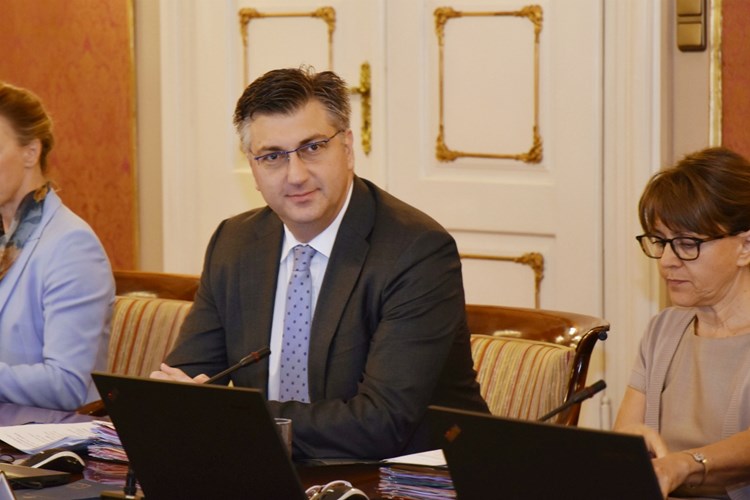


He underscored that all protagonists, including the emergency administration, in the process of stabilisation of the ailing Agropkor group made a huge success and that the government enabled a legislative framework for this 15-month long process during which the group survived in the financial terms.
Plenkovic recalled that small suppliers ad farmers had the recovery rate of 100% for their claims, whereas Agrokor's medium-size and big suppliers were given back 500 million euros, with recovery rates for some of them being 60% or 70% and more, and all the companies were given 15 months to be restructure and to be adjusted to new circumstance.
The most important thing is that Agrokor has now economic prospects, he added.
The success of this process has proven "our problem-solving skill," Plenkovic said.
This was one of the largest restructuring cases in Europe, and has been done in a relatively short period, without a collapse of the local economic and financial system and without the spill-over of negative economic consequences to the economies in the neighbourhood, he said.
Plenkovic once again thanked the emergency administration and former Economy Minister Martina Dalic for their contributions to the completion of the process.
PM Plenkovic said at the government's meeting that a referendum was not an appropriate way of discussing an election system and that there were political parties, the parliament and the government to consider the topics of improvement and regulation of the election system.
He said that his cabinet and the Croatian Democratic Union (HDZ) found the initiative for reducing ethnic minorities' rights and downsizing the number of ethnic minorities' lawmakers to be unacceptable.
"I can't see any reason to question the vested rights of ethnic minority deputies in the parliament," Plenkovic said.
Prime Minister Andrej Plenkovic sent a message to the Croatians on the occasion of the national Antifascist Struggle Day, observed on 22 June, underscoring that the present-day modern Croatia has been built on the rejection of any form of intolerance, extremism and discrimination.
"Antifascism, to which modern-day Europe, with which we share values of democratic development, is committed, is built into the foundations of Croatia's statehood," Prime Minister Andrej Plenkovic said adding that his cabinet permanently advocates the preservation of universal values of peace and freedom and the rule of law.
Numerous Croatian antifascists contributed to the victory over Nazism and Fascism in World War II and Croatia honours them today and remembers with gratitude all people who gave their lives in the struggle for freedom, he says.
"With more than 230,000 antifascist fighters, Croatia can be proud of having had one of the most significant resistance movements in then occupied Europe, and the first Croatian president, Franjo Tudjman, is one of the symbols of Croatia's contribution to the resistance to Nazism and fascism," said PM Plenkovic.
Text: Hina